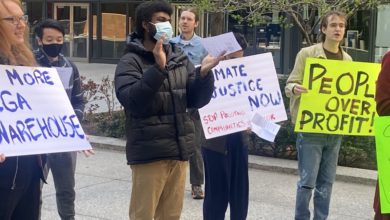On November 5, the Illinois General Assembly passed legislation to legalize same-sex marriage throughout the state. Governor Pat Quinn signed the bill into law November 20, making Illinois the 16th U.S. state to legalize same sex-marriage, following the recent victory in Hawai’i. Beginning June 1, Illinois will issue marriage licenses to same-sex couples, finally granting them the long overdue benefits and recognition that they have been unfairly denied.
Though some will credit the politicians and representatives like Greg Harris for this achievement, the true agents of change were the LGBT community and its allies who struggled tirelessly for marriage equality in Illinois. The measure passed the State Senate on February 14. However, a vote in the House was long delayed due to the intransigence of politicians in Springfield. Just two weeks before the bill was passed, the Chicago Tribune declared a timely vote on the legislation “unlikely” due to the recalcitrance of the lawmakers unwilling to jeopardize their political chances in the upcoming re-election campaign.
Activists throughout the state, however, were not going to simply sit on the sidelines while lawmakers used their rights as a piece of political theater. Throughout the summer, a sustained campaign of marches, rallies, and other actions kept pressure on representatives, and reminded them of the popular will of the people of the state. It was through this campaign, culminating in a march of thousands on the Capitol on October 22, that the rights of Illinois’ gay and lesbian residents were won.
As the fifth most populous state in the U.S. and home to the third largest city, Illinois represents a crucial step forward in the fight for national marriage equality. Recent years have shown great progress in the realm of gay and lesbian rights, including the repeal of the Defense of Marriage Act which had denied federal recognition to same-sex couples since it was signed into law by President Bill Clinton in 1996.
However, while it is important to recognize the magnitude of this law, both for the legal protections it offers to same-sex couples as well as the legitimacy it connotes, much still remains to be done. In the majority of states, equality is still out of reach for many, particularly in states dominated by far-right ideologues with reactionary social views.
Nonetheless, each step forward in the popular fight for LGBT equality is important both for the immediate benefits it confers, as well as the larger significance of what it means for the fight against capitalist oppression. This victory shows the efficacy of collective struggle to liberate the people from the repressive apparatus that keeps poor, working and disenfranchised groups from realizing their political power.





